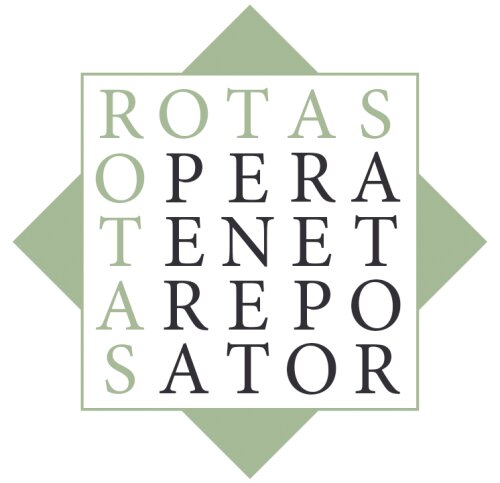Best Telecommunications and Broadcast Lawyers in Rome
Share your needs with us, get contacted by law firms.
Free. Takes 2 min.
List of the best lawyers in Rome, Italy
About Telecommunications and Broadcast Law in Rome, Italy
Telecommunications and Broadcast law in Rome, Italy, covers a broad range of issues related to the provision, management, and regulation of electric communications networks and services, radio and television broadcast services, and the delivery of digital media. These laws are designed to promote a competitive market, protect consumer rights, ensure fair access to networks, and safeguard public interests including cultural diversity and media pluralism. Italy's legal framework is influenced by European Union directives and regulations, which harmonize requirements across member states to create a cohesive digital single market.
Why You May Need a Lawyer
Having legal support in the field of Telecommunications and Broadcast is crucial in various scenarios, such as:
- Applying for a broadcast license or renewing existing licenses.
- Negotiating commercial agreements related to telecommunication services or content distribution.
- Ensuring compliance with national and EU regulations, including data protection and privacy laws.
- Addressing issues relating to spectrum allocation and use.
- Resolving disputes over intellectual property rights or antitrust concerns.
- Handling consumer protection matters regarding service quality, billing, and contracts.
Local Laws Overview
Key aspects of the local laws relating to Telecommunications and Broadcast in Rome include:
- The Italian Electronic Communications Code, which translates EU directives into the national context.
- Regulations enforced by the Italian Communications Authority (AGCOM), which supervises broadcast and telecommunications activities.
- Compliance with the General Data Protection Regulation (GDPR) for operations that involve the handling of personal data.
- The Audiovisual Media Services Directive (AVMSD) implementation that guides the provision of audiovisual media services.
- Spectrum management and allocation rules that ensure interference-free communication and broadcasting.
Frequently Asked Questions
What is the role of AGCOM in Telecommunications and Broadcast?
The Italian Communications Authority (AGCOM) is the regulatory agency that supervises the telecommunications and broadcasting sectors, ensuring compliance with laws and regulations, promoting competition, and protecting consumers.
Do I need a license to operate a broadcasting station in Italy?
Yes, operating a broadcasting station in Italy requires a specific license, which is granted by the competent authorities after a thorough evaluation process.
How does Italian law protect my intellectual property in broadcasting?
Italian law protects intellectual property rights through various legislations, including copyright laws, which broadcasters must adhere to when transmitting content.
Can I appeal an AGCOM decision?
Yes, decisions made by AGCOM can be appealed. You may need to seek legal advice on the appropriate administrative or judicial avenues for appeal.
What is the GDPR, and how does it apply to telecommunications?
The GDPR is a European Union regulation that sets guidelines for data protection and privacy. It applies to telecommunications in that service providers must ensure personal data is handled in compliance with these rules.
Does EU law apply to Telecommunications and Broadcast in Rome, Italy?
EU law significantly influences Telecommunications and Broadcast in Italy since Rome must implement directives and regulations as an EU member state.
Where can I report a telecommunications service complaint in Rome?
Complaints about telecommunications services can be reported to AGCOM or consumer protection associations that work to address such issues.
Are there any restrictions on foreign investment in Italian broadcasting?
Foreign investment in broadcasting is subject to certain restrictions aimed at preserving pluralism and cultural diversity, which may require navigating complex laws.
What are the penalties for non-compliance with Telecommunications law?
Penalties can range from fines to revocation of licenses, depending on the severity of the non-compliance.
How often do telecommunications regulations change?
Regulations evolve frequently to adapt to technological advancements and new EU policies, affecting all players operating within this sector.
Additional Resources
- The Italian Electronic Communications Code for comprehensive legal texts.
- The Italian Communications Authority (AGCOM) for regulatory guidance and updates.
- The European Commission’s digital single market website for EU-wide legislation.
Next Steps
If you require legal assistance in the field of Telecommunications and Broadcast in Rome, it is advisable to:
- Consult with a lawyer who specializes in telecommunications and broadcast law.
- Prepare and gather relevant documents and information pertaining to your case.
- Understand your rights and obligations under both Italian and EU law.
- Discuss your case with the lawyer to identify the best course of action.
Considering the complexity of this legal field, professional advice will facilitate compliance and legal proceedings.
Lawzana helps you find the best lawyers and law firms in Rome through a curated and pre-screened list of qualified legal professionals. Our platform offers rankings and detailed profiles of attorneys and law firms, allowing you to compare based on practice areas, including Telecommunications and Broadcast, experience, and client feedback.
Each profile includes a description of the firm's areas of practice, client reviews, team members and partners, year of establishment, spoken languages, office locations, contact information, social media presence, and any published articles or resources. Most firms on our platform speak English and are experienced in both local and international legal matters.
Get a quote from top-rated law firms in Rome, Italy — quickly, securely, and without unnecessary hassle.
Disclaimer:
The information provided on this page is for general informational purposes only and does not constitute legal advice. While we strive to ensure the accuracy and relevance of the content, legal information may change over time, and interpretations of the law can vary. You should always consult with a qualified legal professional for advice specific to your situation.
We disclaim all liability for actions taken or not taken based on the content of this page. If you believe any information is incorrect or outdated, please contact us, and we will review and update it where appropriate.
















